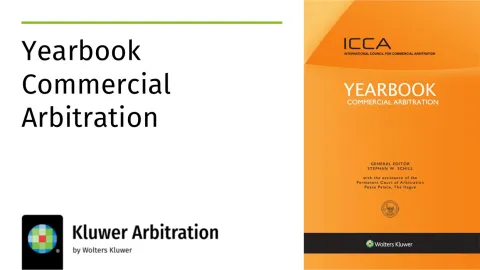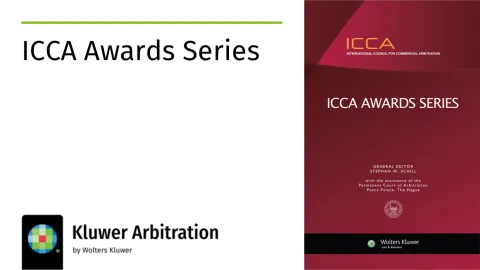2025 Australian Arbitration Week Recap: 40 Years Forward: Arbitration in 2065
October 17, 2025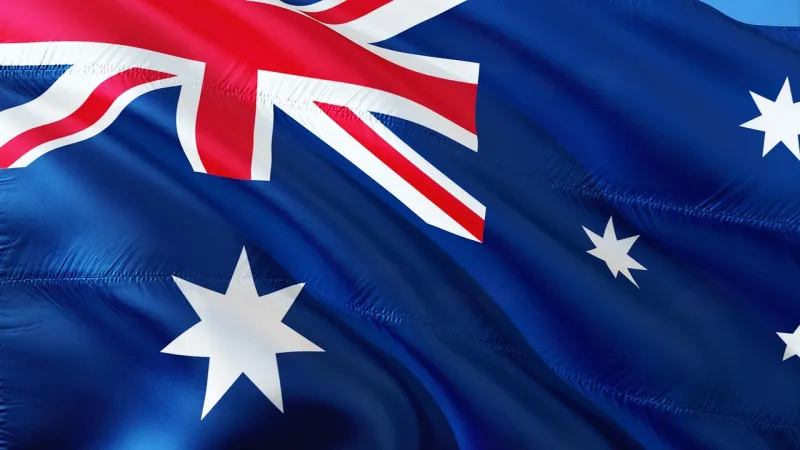
In celebration of the 40th anniversary of the Australian Centre for International Commercial Arbitration (“ACICA”), ACICA45, the ACICA’s group for young and emerging practitioners, hosted a thought-provoking breakfast panel at Corrs Chambers Westgarth’s Sydney office to explore the future of arbitration and what it means for arbitration practitioners today. Peering into the crystal ball, the panel predicted how technological innovation and shifting global dynamics may shape arbitration over the next four decades.
The panel was moderated by Eden Jardine (Senior Associate, Corrs Chambers Westgarth) and comprised:
Anna Grunseit (Special Counsel, Corrs Chambers Westgarth);
Robert Kirkness (Barrister, Thorndon Chambers);
Sareena Oberoi (Principal Corporate Counsel, Microsoft);
Isaac Wong (Associate Director, BRG); and
Carlotta Bruessel (Senior Associate, Nishimura & Asahi).
The panel discussion considered three central themes: technology as a game-changer, reimagining arbitral processes, and subject matter innovation.
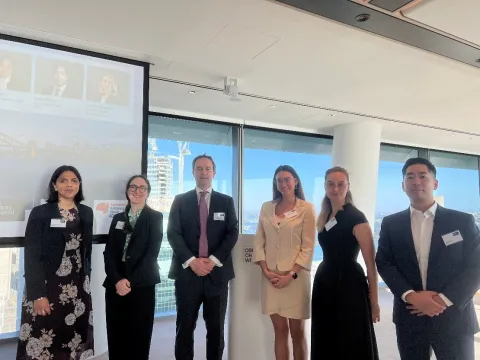
1. Panellists (left to right): Sareena Oberoi, Anna Grunseit, Robert Kirkness, Eden Jardine (Moderator), Carlotta Bruessel, Isaac Wong
Emerging Trends in Arbitration
Mr Kirkness opened the panel with a compelling overview of emerging trends in arbitration. By tracing the development of arbitration from small-scale, bespoke matters to its current role in complex transnational matters, Mr Kirkness identified three themes in arbitration’s evolution:
the proliferation of arbitration as a dispute resolution mechanism, including the way in which arbitration rules will be adopted and adapted for alternative dispute forums;
the fragmentation of arbitration offerings to disrupt the traditional big firm monopoly over arbitral proceedings; and
a segmentation of roles and adoption of AI where commercial interests dissuade expensive legal advice for low quantum claims.
Mr Kirkness then considered arbitration’s potential role in climate change-related disputes, predicting a rise in investor-state disputes and state-state disputes. He also suggested that arbitration, with its jurisdictional reach, is well-positioned to address disputes in these domains.
AI Arbitrators and Digital Confidentiality
Next, Ms Grunseit considered the emergence of AI arbitrators. Ms Grunseit observed that despite a general acceptance that AI will have a role in the future of arbitration, there remains a strong general resistance to its involvement as an ultimate decision-maker. Against this background, Ms Grunseit posed a series of critical questions highlighting the normative, procedural and legal uncertainties to be navigated beyond the question of technological capability. For example, insofar as AI tools are trained on existing datasets, to what extent can new law evolve, and do we risk missing opportunities to develop legal precedent? And would an AI arbitrator, trained on data predominantly from a particular jurisdiction, be imbued with a national bias that could be ground for challenge? These questions underscored the inherent uncertainties associated with the ramifications of technological development on legal processes and bring to mind the comments of Chief Justice Allsop AC of the Federal Court of Australia:
To a degree, the future must remain unknown. Artificial intelligence and its effect on Courts, the profession and the law will change the landscape of life in ways we cannot predict.
In a joint discussion, Ms Grunseit and Ms Oberoi then explored the tension between technological advancement and the demand to preserve confidentiality in arbitration. Ms Grunseit suggested that a sub-set of arbitration may develop that is off-line and analogue for clients particularly concerned to preserve confidentiality. Ms Oberoi emphasised the importance of understanding the technology being used when conducting confidential work and encouraged lawyers to question whether that technology was appropriately serving the required purpose. She recommended asking who owns the data being inputted, what security measures are in place, and what actions could be taken to increase security. For Ms Oberoi, while technology companies owe a responsibility to ensure the appropriate technology is provided to customers, customers also have a responsibility to interrogate whether the technological tools being adopted for particular tasks are appropriate. This is an important reminder to lawyers using this technology on behalf of their clients.
Equitable Innovation and Legal Skills for the Future
The next topic, discussed by Ms Oberoi and Ms Bruessel, turned the spotlight on ways to mitigate unfairness in a global landscape with varying approaches to AI and technology-adoption in a dispute resolution context. Ms Oberoi highlighted that even when using ‘automated systems’, human oversight will still play a crucial role in providing justice. Rather than taking over from humans, technology should remain a tool to assist and facilitate justice. This involves transparency regarding standards and guidelines to generate a framework for ethical and responsible use of AI and technology.
Ms Bruessel noted that while large transnational corporations have already adopted AI systems to resolve disputes efficiently, new challenges arise where AI might generate unfairness in processes. For example, where countries have restrictions on the use of AI, parties may challenge the enforceability of AI decisions in that jurisdiction. Reflecting further on Ms Bruessel’s comments, given the present adoption of AI systems in dispute resolution processes, it seems evident that arbitral institutions will invariably be required to proactively confront these procedural challenges. Noting two recent publications – the European Union’s Artificial Intelligence Act and the Silicon Valley Arbitration and Mediation Center’s Guidelines on the Use of AI – it is foreseeable that increased institutional guidance in this space is imminent.
The conversation also addressed the evolving skill set required of lawyers. Ms Bruessel noted that while skills of critical thinking and attention to detail remain relevant, lawyers must now also be conversant in technology. The rise of AI is shifting the client/lawyer relationship from a service provider to a relationship provider. This was another key takeaway for practitioners.
Virtual Societies and Digital Evidence
Ms Bruessel next commented that although the rise of virtual world-making has not played out as anticipated, the regulation of digital spaces was already raising challenging issues, including those of anonymous parties and enforceability against virtual assets. However, many of the underlying contracts in the digital technology space at present do incorporate traditional arbitration clauses.
Mr Wong considered the final panel topic of the procedural innovations that may be required to validate digital evidence in future arbitral proceedings. As disputes increasingly involve AI-generated documentation, and as the risk of deep-fakes becomes an everyday reality, traditional evidentiary standards may prove inadequate. Mr Wong proposed the development of AI verification protocols to bolster the security of arbitral proceedings, and transparency surrounding the AI tools used to validate data. Again, however, Mr Wong noted that humans and AI would need to jointly validate these verification mechanisms, to appropriately mitigate against the risk of AI biases and AI error. He suggested that trusted models might be expected to be developed that parties would be able to agree to employ in their disputes. This presents an opportunity for arbitral institutions to expand their offerings in the future to supplement a bench of trusted arbitrators with a suite of trusted technical tools.
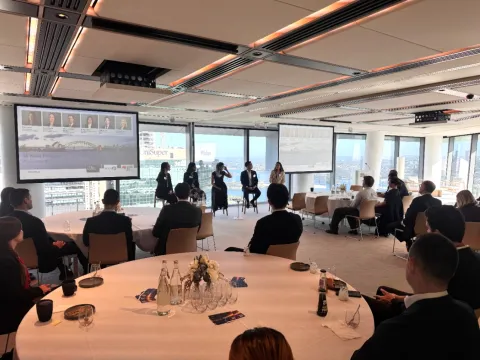
2. Panel event
Looking Ahead: Arbitration in 2065
The ACICA45 panel offered a compelling vision of arbitration in 2065, characterised by technological innovation and procedural sophistication. From disputes regarding climate disruption to new technologies, arbitration is poised to play a pivotal role in managing the complexities of a transformed global order.
As the panellists made clear, this future is not without its challenges and uncertainties. Ensuring fairness, protecting confidentiality, and maintaining the legitimacy of arbitral processes will require ongoing vigilance and adaptation. As Ms Oberoi concluded, “[u]ltimately, we all have to take responsibility for the technology we are using.” Arbitral institutions like ACICA will be instrumental in navigating these issues, facilitating the evolution of arbitration as an effective mechanism for dispute resolution in a changing world and guiding best practices in the face of rapid technological development.
More coverage from the Australian Arbitration Week is available here.
You may also like

